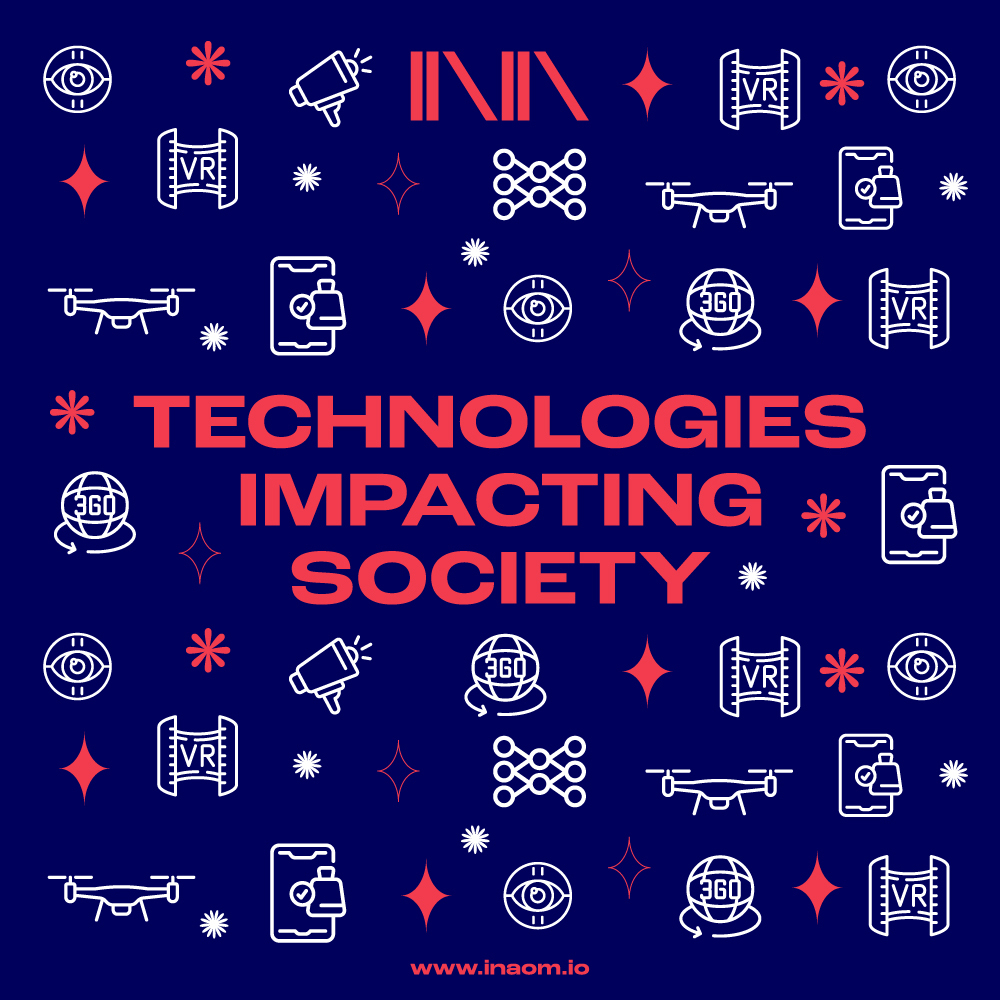Introduction
In today’s rapidly evolving technological landscape, artificial intelligence (AI) holds immense potential to transform various aspects of our lives. However, as we embrace AI’s advancements, it becomes crucial to ensure that these technologies are accessible and inclusive for all members of society, including those with disabilities and neurodiverse individuals. In this episode of the “Technologies Impacting Society” podcast, our host Ina O’ Murchu engages in an enlightening conversation with Yonah Welker, an expert in AI robotics and deep technology, who advocates for algorithmic diversity and the well-being of people with cognitive disabilities. Together, they explore the implications of the EU AI Act Disabilities on accessibility and assistive technologies for neurodiverse communities.
Follow Yonah Welker:
Follow Global AI Summit:
https://twitter.com/globalaisummit
Understanding the EU AI Act
The European Union’s AI Act represents a significant regulatory framework aimed at governing AI applications within the EU’s member states. As technology advances, it has become apparent that adequate regulation is necessary to strike a balance between innovation and safeguarding individual rights. The EU AI Act addresses this need by providing guidelines for AI systems’ deployment, ensuring transparency, and mitigating potential risks.
Evolution from GDPR to AI Act
Before delving into the specifics of the EU AI Act, it is essential to highlight its connection to the General Data Protection Regulation (GDPR). The GDPR marked a significant milestone in data privacy regulation, establishing principles and rules for data protection and processing. Building on this foundation, the EU AI Act extends its scope to include AI technologies, recognizing the profound implications AI can have on individuals and society.
Categorization of AI Systems
The EU AI Act proposes four categories to regulate AI systems based on their level of risk: unacceptable risk, high risk, limited risk, and minimal or no risk. This tiered approach allows for varying degrees of scrutiny, with high-risk AI applications subjected to stringent requirements to ensure safety and ethical use.
Addressing Accessibility and Disability in the EU AI Act
While the EU AI Act addresses several critical aspects of AI regulation, it is crucial to prioritise accessibility and assistive technologies for people with disabilities and neurodiverse individuals. Inclusive technology design ensures that AI applications cater to a diverse range of users, regardless of their abilities.
Read Post: Empowering Humanity Through Neurodiversity
Importance of Prioritising Accessibility
In embracing the potential of AI for societal good, it is essential to ensure that AI technologies are designed with accessibility in mind from the outset. For people with disabilities and neurodiverse individuals, AI holds immense promise in revolutionising their lives, from facilitating independent living to enhancing communication and accessibility.
Identifying Risks and Challenges
The deployment of AI technologies can also present unique risks and challenges for neurodiverse individuals and people with disabilities. These risks may range from biassed algorithms that exacerbate inequalities to AI systems lacking the necessary adaptations to cater to diverse needs.
Lack of Specific Provisions
Despite the EU AI Act’s comprehensive approach to regulating AI applications, there remains a notable gap in addressing the specific needs of neurodiverse individuals and people with disabilities. The act’s current version lacks provisions that specifically cater to these communities, necessitating further refinement to ensure inclusivity.
The Dangers of Misinformation and Bias in AI
As AI becomes increasingly pervasive, concerns about misinformation and biases in AI algorithms come to the fore. AI centralised technologies and biassed algorithms can perpetuate discriminatory practices, inadvertently excluding certain groups, including neurodiverse individuals and people with disabilities.
Centralised AI Technologies
Centralised AI technologies, where decision-making power is concentrated in a few entities, raise concerns about the potential for exclusionary practices. These centralised systems may not adequately consider the unique needs and requirements of neurodiverse communities, leading to a lack of inclusive solutions.
Addressing Bias in Algorithms
The development of AI algorithms must be accompanied by rigorous efforts to identify and eliminate biases. Bias in AI can lead to discriminatory outcomes, hindering access to essential services and opportunities for people with disabilities and neurodiverse individuals.
Ethical AI Platforms
Promoting ethical AI platforms involves the conscious efforts of policymakers and technologists to adhere to principles of fairness, transparency, and inclusivity. AI technologies must be built with the understanding that they serve diverse populations, and any form of bias can have severe consequences for marginalised communities.
Advocacy by NGOs and Individual Efforts
Efforts towards a more inclusive AI landscape are not solely the responsibility of policymakers and corporations. Non-governmental organisations (NGOs) and individual advocates play a crucial role in championing the cause of neurodiverse individuals and people with disabilities.
Impactful NGO Efforts
NGOs focused on disability rights and neurodiversity have been instrumental in advocating for more inclusive AI policies. Their valuable insights and lived experiences bring attention to the diverse needs and challenges faced by these communities.
Role of Yonah Welker
Individuals like Yonah Welker, who dedicate their work to AI accessibility and cognitive disability aspects, play an essential role in driving policy discussions. Yonah’s expertise in AI robotics and deep technology has been instrumental. He highlights the importance of catering to the specific requirements of neurodiverse individuals.
Challenges Faced by Evangelists
However, advocating for disability-specific criteria in the EU AI Act is not without challenges. Evangelists often face resistance and scepticism, highlighting the need for continued efforts to raise awareness and foster understanding.
Positive Impacts of the EU AI Act
The EU AI Act acknowledges the potential for improvement in catering to the needs of neurodiverse communities. Nevertheless, it is vital to also acknowledge the Act’s positive impacts on AI regulation within the European Union. By highlighting both areas for enhancement and achievements, policymakers can work towards a more inclusive and effective AI regulatory framework in the EU.
Initiation of Vital Discussions
The EU AI Act has triggered vital discussions about AI ethics and accountability. It has raised awareness of the potential risks associated with AI systems, leading to a broader societal conversation about responsible AI use.
Collaboration for Localised Regulations
Furthermore, the EU AI Act serves as a catalyst for international collaboration. It inspires countries outside the EU to develop their localized AI regulations. This global dialogue is vital to ensure that AI policies resonate with diverse cultural, social, and disability-related contexts.
Continuous Improvement
The journey towards inclusive AI policies is an ongoing process. The EU AI Act marks a significant step forward. However, continuous improvement and refinement are necessary to create a truly inclusive AI framework
How Can We Contribute in Shaping the AI-powered World?
In our quest for a more inclusive AI-powered world, each individual can contribute to shaping a better future:
1. Stay Informed: Encourage readers to stay informed about AI policies, ongoing developments, and their implications for marginalised communities.
2. Participate in Discussions: Inspire readers to actively engage in discussions on AI ethics, accessibility, and inclusivity.
3. Engage with NGOs: Provide links to relevant resources and organisations advocating for disability rights and neurodiversity in AI.
4. Be an Advocate: Motivate readers to become advocates for AI accessibility and inclusivity in their respective communities, workplaces, and academic institutions.
Let us join hands in shaping an AI-powered world that prioritises accessibility, embraces neuro diversity, and fosters inclusivity for all. Together, we can unlock the full potential of AI while ensuring no one is left behind. By striving for an inclusive future, we can harness technology’s power to create a positive impact. This positive impact extends to people regardless of their abilities.
Conclusion
In conclusion, the EU AI Act represents a commendable effort to regulate AI applications and safeguard societal interests. Creating an inclusive tech landscape requires addressing needs and risks faced by disabled & neurodiverse individuals. Incorporating provisions and considering AI accessibility ensures technology benefits everyone. AI applications play a vital role in this inclusive approach. They leave no one behind, making a positive impact on people’s lives.










